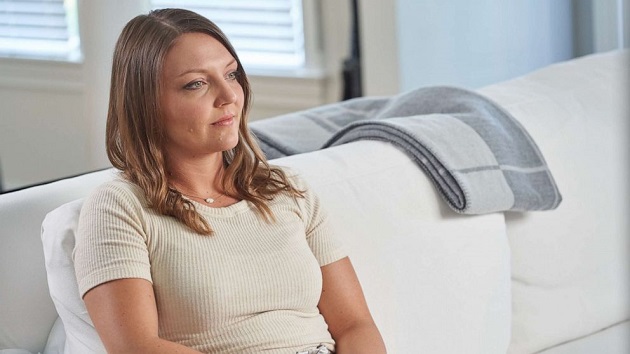(NEW YORK) — A woman who was allegedly sexually abused as a child by Jeffrey Epstein is asking the U.S. Supreme Court to overturn an appeals court ruling that, if allowed to stand, would end her years-long challenge to federal prosecutors’ once-secret deal with the deceased sex offender, which in 2008 allowed Epstein to avoid federal charges involving more than 30 underage victims.
“The nation’s highest court should review this ‘national disgrace’ and bring some measure of justice by overturning the decision,” wrote attorneys for Courtney Wild in a petition to the Supreme Court this week. “The importance of this case to crime victims — and to the public — cannot be overstated.”
Wild’s lawyers contend that the case presents a “now-or-never opportunity” for the Supreme Court to decide whether the government’s “covert practices” that concealed the Epstein deal from his victims violated the federal Crime Victims’ Rights Act.
“Courtney’s rights were intentionally violated by our government, and we are now asking our United States Supreme Court to take this important case and finally bring the justice Courtney has been seeking, which will forever forbid the government from working in secret against victims, no matter how wealthy and powerful the criminal might be,” said Brad Edwards, one of Wild’s attorneys.
Wild, 33, sued the U.S. Justice Department in 2008, demanding information from federal prosecutors about their investigation of Epstein, a multimillionaire financier who allegedly sexually abused dozens of underage girls, including Wild, at his waterfront mansion on Florida’s Palm Beach Island.
Wild’s legal action forced the government to admit that the U.S. Attorney’s Office in Miami had already reached a confidential deal with Epstein several months earlier, without informing the alleged victims. Over 12 years of litigation, Wild’s case ultimately exposed details of the secret negotiations between prosecutors and Epstein’s high-priced legal team that led to the controversial agreement.
“Without our case, probably no one would have seen the non-prosecution agreement, the secret agreement,” Edwards said. “Without that action, nobody would have known just how bad [Epstein] and his other co-conspirators were. No one would have ever understood the whole story.”
But the 11th Circuit Court of Appeals ruled in April, in a 7-4 decision, that Wild’s case never should have been allowed to proceed. The majority of judges concluded that the Crime Victims’ Rights Act (CVRA), enacted by Congress in 2004, did not permit her to sue the Justice Department over Epstein’s so-called “sweetheart deal” in the absence of an existing criminal prosecution.
Federal prosecutors drafted a 53-page indictment of Epstein in 2007 but never filed it, opting to forgo federal prosecution in exchange for Epstein’s guilty pleas to two prostitution-related charges in Palm Beach County Court. Instead of facing a potential sentence between 14 and 17 years, Epstein served 13 months in the private wing of a county jail, much of that time on work release that allowed him to spend up to 16 hours a day at his West Palm Beach office, before he was released in 2009.
“Because the [federal] government never filed charges against Epstein, there was no pre-existing proceeding in which Ms. Wild could have moved for relief under the CVRA, and the Act does not sanction her stand-alone suit,” U.S. Circuit Judge Kevin Newsom wrote in the court’s majority opinion.
Newsom acknowledged that the court’s decision left Wild and other alleged Epstein victims “largely empty handed” and without any remedy for the U.S. government’s alleged mistreatment of Epstein’s victims. Wild had argued for years that the Epstein deal, which also conferred limited immunity to any alleged co-conspirators, should be declared illegal and torn up.
“We have the profoundest sympathy for Ms. Wild and others like her, who suffered unspeakable horror at Epstein’s hands, only to be left in the dark — and, so it seems, affirmatively misled — by government attorneys,” Newsom wrote in April. “Shameful all the way around. The whole thing makes me sick.”
In arguing for the Supreme Court to step in, Wild’s lawyers contend that the appeals court decision effectively frees the government “to dispense with victims’ rights and orchestrate clandestine deals without affording victims any rights under the CVRA.”
“Unless the decision from the 11th Circuit is overturned, the Justice Department will have a blueprint for keeping all sorts of negotiations secret — to the detriment of victims and the public understanding how cases are being resolved,” said Paul Cassell, another of Wild’s attorneys.
Wild, now a mother of two, was present in a Manhattan courtroom in July of 2019, when Epstein made his first appearance after being charged by federal authorities in New York with conspiracy and child sex trafficking. Epstein died a month later by apparent suicide while being held in New York City’s Metropolitan Correctional Center. But Wild and her lawyers contend that her case against the federal government should not end with Epstein’s death.
“All we have ever wanted is to make sure that there are basic rights for victims like myself,” Wild told ABC News in a statement. “My final hope in this fight is with the United States Supreme Court, who I hope and pray will take my case and right the wrong that was done.”
Copyright © 2021, ABC Audio. All rights reserved.


